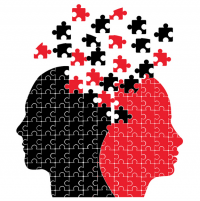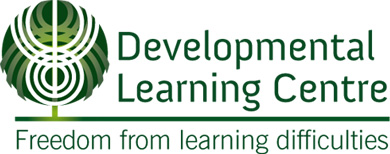ADHD and Autism: What Do These Learning Difficulties Have In Common?

What do ADHD and Autism have in common?
Of all the learning difficulties, ADHD(Attention- Deficit/ Hyperactivity Disorder) and Autistic Spectrum Disorders (ASD) are the two of the most challenging for teachers to manage in the classroom. Children with symptoms of ADHD are disruptive in the classroom with their excessive need to move (hyperactivity), to act without thinking(impulsivity) and their tendency to quickly lose attention for the task at hand (inattention).They are poor listeners and quickly forget what they have just heard.
A significant number of children with Aspergers’ Syndrome or high functioning autism are also to be found in our schools. While many symptoms overlap with ADHD these children are primarily characterised by difficulties maintaining reciprocal social interactions, poor social skills, repetitive behaviours and over riding special interests. They will call out, interrupt others and have difficulty taking turns. They miss social cues and do not perceive the intonations in speech. They are poor listeners and have difficulty responding appropriately to communication from others.
How can auditory processing affect Autism and ADHD?
The causes of these disorders are complex and still being discovered. However there is an emerging body of research which finds a common thread in a disturbance or deficit in sensory processing in both groups, and auditory processing in particular.
Testing of hundreds of children over the past 10 years in my clinic using the SCAN C Test for Auditory Processing Disorders in Children has revealed that these children frequently do not understand or mishear what is being said to them, especially when there is background noise. It is difficult for anyone to pay attention for long when what is being heard does not make sense. After a short while fatigue sets in and it is easier to tune out and do your own thing. Many of these children also have auditory hypersensitivity, are very easily distracted by noise and prone to sensory overwhelm and melt downs.
How can auditory processing be improved to help Autism and ADHD?
Much can be done in the school setting to improve the auditory and sensory processing of these children. Auditory retraining or sound therapy was initially developed by Dr Alfred Tomatis, a French ear, nose and throat specialist who developed a system of filtered music to treat non verbal, autistic children. He expanded this to include children with other learning difficulties such as dyslexia, finding in all a common thread of an auditory processing deficit.
Recent work in this field over the past 20 years by Dr Ron Minson, MD, neurologist and psychiatrist, Denver, Colorado, has shown that sound therapy is greatly enhanced when performed together with a multi sensory movement programme. This approach is most suitable for children with ADHD as they get to move around while they are listening.
Our recent study at Greenpark School in Tauranga on the effects of Integrated Listening therapy on children with literacy difficulties showed significant gains in all behavioural areas as well as literacy. Feedback was sought from teachers in four different areas of behaviour:
- Sensory motor ( including hyperactivity, awkwardness, fine motor skills etc)
- Auditory/Language (difficulty understanding and following instructions, confusing similar sounds and words, monotone voice, needs frequent repetition, difficulty interpreting tone of voice, becomes fearful or hyper when in noisy situations etc)
- Social/Emotional (avoids eye contact, easily overwhelmed and frustrated, difficulty making and keeping friends, lack of tactfulness, acts impulsively, difficulty with transitions etc) and
- Organisational/Attention/ Cognitive ( easily distracted, poor short term memory, disorganised, difficulty beginning and ending tasks etc) .
The results of the study showed approximately twice the improvement in the group receiving sound therapy in all areas assessed than in the control group ( see study under Research).
A sound therapy programme can be set up and run with ease by a teacher aide for 4-6 children at a time, under the supervision of a trained SENCO or remedial teacher. More advanced programmes with bone conduction therapy are also available for children on the autistic spectrum.
Are you concerned your child is suffering from Autism and/or ADHD?
Call 0800 543 399 or request a free call back with the Developmental Learning Centre to understand if how your child could benefit from our natural and holistic therapies.
